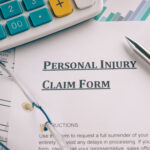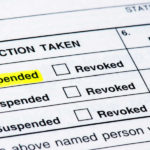Blog
-
Ringing in Ears After a Car Crash? It Could Be Tinnitus And a Case
The forces in a car accident are enormous, and they can leave damage you don’t always see right away. After the shock fades, many people…
-
How Often Do Car Accident Settlements Exceed Limits & How to Max Yours
When a car crash leaves you with serious injuries and the other driver’s insurance maxes out at $10,000, it’s natural to wonder— “Is that all…
-
What to Do after a Slip and Fall Accident?
Let’s be honest — no one expects to fall in public. One minute you’re shopping, walking into work, or enjoying a resort, and the next,…
-
Florida Seat Belt Laws Explained
Florida seatbelt laws are in place to protect lives. These laws weren’t just written, they’re actively enforced across the state, especially in major metropolitan areas…
-
Florida Statute of Limitations on Injury: What Victims Should Know
If you’ve been hurt in an accident, the last thing on your mind is paperwork or legal deadlines, but waiting too long could cost you…
-
How Long Does a DUI Stay on Your Record in Florida
Getting arrested for DUI can turn your life upside down. You may feel overwhelmed, scared about your future, and unsure how long this one mistake…
-
Whiplash Settlements in Florida: What’s the Real Payout?
You’re still hurting, and now the insurance company is offering you a check that barely covers your pain. After everything you’ve been through, you’re left…
-
When Do You Need an Auto Accident Lawsuit?
If you’re thinking about filing an auto accident lawsuit after a car crash, you’re probably wondering how long it takes, what the steps are, and…
-
Hit and Run Accident in Florida? Don’t Panic—Do This
You’re involved in an accident, and then the other vehicle takes off. No exchange of information, no waiting for the police, just gone. In Florida,…
-
Florida Car Seat Laws Made Simple for Families and Drivers
Car seat laws in Florida aren’t just a list of rules—they’re the difference between protecting your child in a crash or facing heartbreaking consequences. Whether…
Get Help Now!
Easy. Quick. Confidential.










